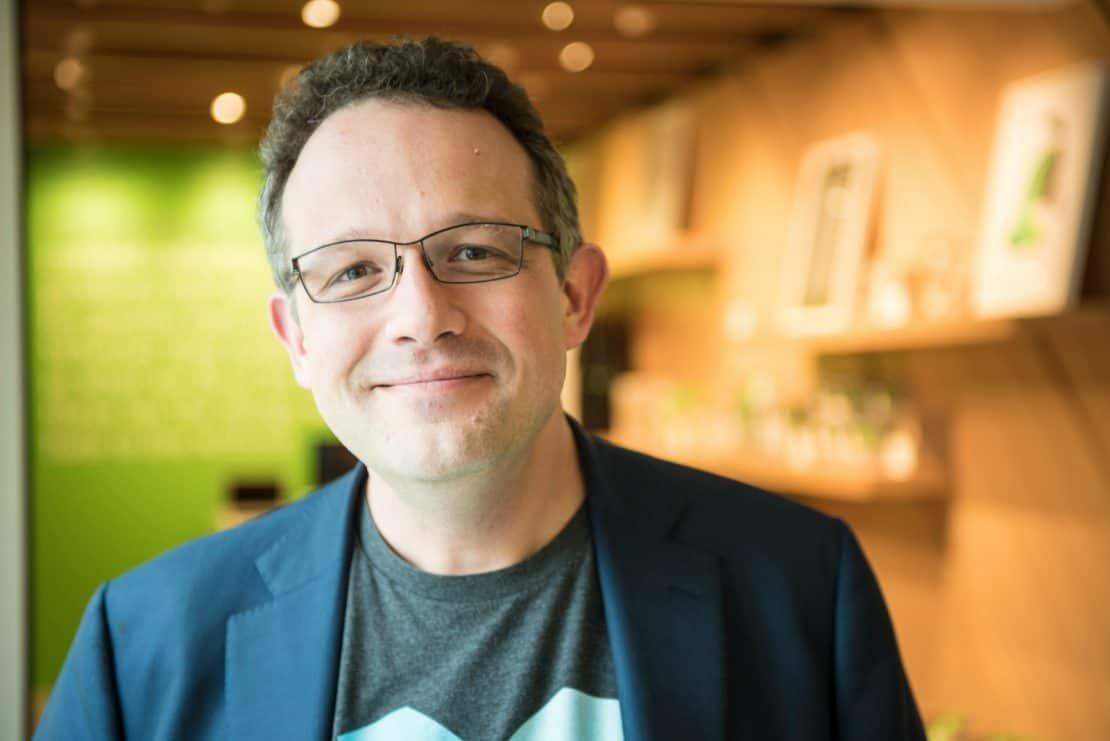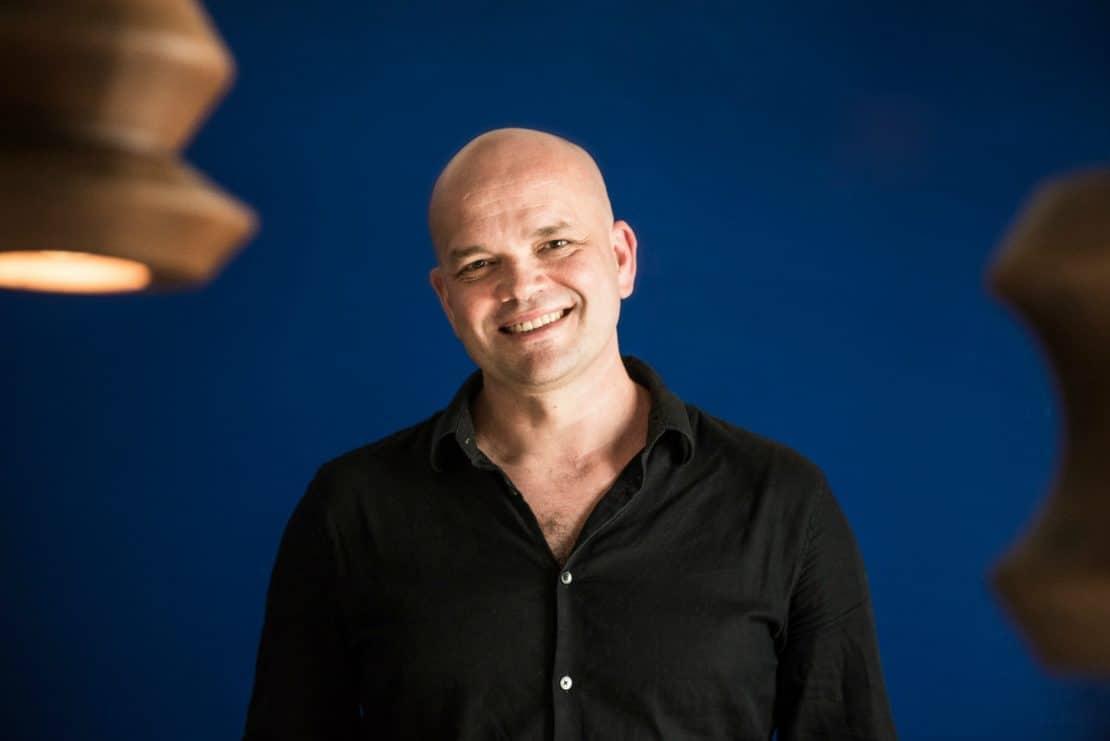21Jul2015
Phil Libin aims to redesign the future of work using augmented intelligence and by making sure that Evernote employees have enough coffee.
Evernote, the note-taking app that has become the modern workspace for knowledge workers, is entering its eighth year in business. For CEO* and co-founder Phil Libin, this is just the beginning of a 100-year startup mission to make work suck less. What that means is doing everything to ensure that the ‘startup magic’ the company had at the start of its life, remains true 100 years from now while changing the way we all work.
”The technology for productivity hasn’t really changed that much in 30 years. We want to create better productivity tools,” Libin says of Evernote’s mission.
Prior to joining Evernote, Libin had already led two Internet companies from the very beginning to commercial success: a credential and identity management technology company CoreStreet, and software development company Engine 5. Though both of the earlier companies were acquired, the idea this time is different. An exit is not the ultimate goal. The 100-year start-up plan also requires the products to be ”sufficiently epic” to stand the test of time and still be great more than 90 years from now.
”The way the world is wired up right now especially in technology, is that people have infinite choice. Because of social media and app stores, everyone is going to know about a beautiful and great product right away and be able to get it. That flattens the playing field and makes it possible for anyone to get in and succeed. However, it also raises the bar for making something high-quality. So on one hand, it makes it much harder to run a company because you have to always be thinking about quality and greatness. On the other hand, it creates opportunities that were not there before. Focusing on the experience and the beauty of the experience is the single most important thing for us,” Libin explains.
Work and life are not different things
Libin’s personal views on work and life certainly sound epic. In his mind, work and life are not different elements to be balanced.
”It’s good to have a purpose, a meaning and a reason for waking up in the morning. I think the best life is achieved when you have a unity of purpose in every hour that you spend awake,” he says.
Purposeful work is important not only for Libin, but for everyone at Evernote. For the cynics, having purpose might sound like a phony leadership mantra but for Libin a mission that is worthy of great people serves as a starting point for building a structure where everybody feels that they are moving towards a mutual goal.
”I think people feel frustrated when they feel they are not making progress or when they don’t understand their impact on what the company is doing. We try very hard to make sure that everyone is aware of the impact they have,” Libin says.
Passion, not position
Discussing leadership with Libin turns out to be a harder task that one might have thought. Not because he professes ignorance about anything leadership-related, but because of his obvious humility.
”I’ve never really self-identified as a leader or a manager. There are people who are excellent at leading or managing. I don’t think that is what I am. I’m focused on making something. What I’m pretty good at is getting like-minded people to go in the same direction.”
Well, doesn’t that sound like leadership?
”I think that there’s a stage in a company where you really need someone who is truly a great professional leader. That’s not me. You need a totally different set of skills,” Libin observes, ”I don’t know if everything stems from the top. I think there’s some kind of a personality cult of the CEO or a founder as being more important than they really are. Both certainly play an important role, but I’m only one of 400 people here. Even if I think that I do the work of ten people, there would still be 390 people here. Evernote is not created by me, it’s done by the rest of the staff. My role is to make sure we attract amazingly talented people and that they have enough coffee to go out and change the world.”
Libin tries to play down his impact on the company’s success, but in so doing only manages to more closely resemble what management author Jim Collins would call a ”level 5 leader” – modest but willful, shy but fearless.
Though he doesn’t consider himself a ’professional’ leader, Libin has certainly internalized John F. Kennedy’s views about the intrinsic link between leadership and learning.
”One of the great things about being in this industry and especially in Silicon Valley is that there is so many great mentors who are very open and available for a talk. It’s a privilege to be here,” Libin explains.
Translating vision into reality
Evernote now has more than 100 million users worldwide, and 75% of the total user base comes from outside of the US and Canada. In the Nordics, roughly 2 million customers run the productivity app. Sweden tops the list with 700,000 users while Denmark (600,000 users), Norway (400,000 users), and Finland (230,000) follow.
What began as a free app for note-taking is now monetizing its value with Plus, Premium, and Business offerings, together with Evernote Market, while evolving to cater to all the needs of a modern and collaborative workplace. For Libin, the best way to predict the future of work seems to be to create it. As he is quick to point out: ”The old ideas of productivity are based on these very physical concepts. In the birth of our industry, people who created it were faced with the challenge of how to explain computers and what you can do with digital technology. So you got files, folders, desktops, slides, which were analogous to the physical objects in the world because that was the only way to get people to understand.”
“First, there was a typewriter that Microsoft Office took and put inside of a computer. Then Google Docs took that and put it inside of a web browser. That’s progress, but it’s still not enough. It’s still a typewriter. The next generation is tools that are not based on physical concepts of reality. Tools that don’t separate writing, talking, collaborating and reading, but let you do all in one unified experience. That’s what we are trying to do. A unified experience where everything that you need to do at work is in one coherent and organized place,” Libin clarifies.
* Editor’s note: Phil Libin is the former CEO of Evernote and currently serves as an Executive Chairman. You can read the press release here. This interview with Phil Libin was conducted prior to the announcement that Evernote appointed Chris O’Neill as CEO, and co-founder Phil Libin as Executive Chairman.

 by:
by: 
